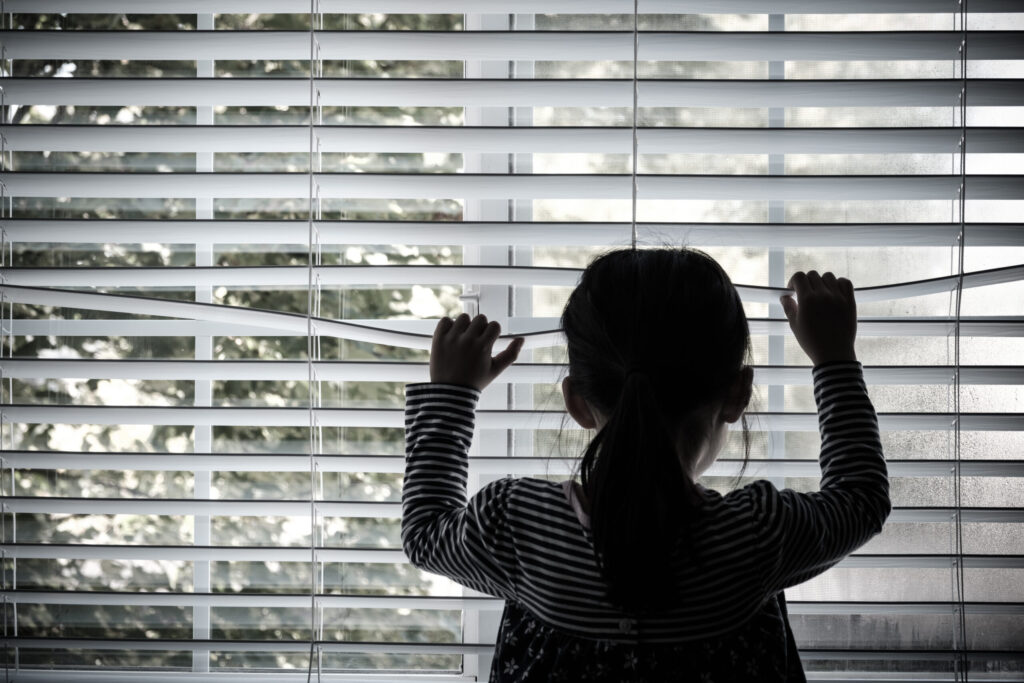- When one parent poisons a child against the other because of their own hurt, complicated family therapy is needed to heal the bonds.
- But conventional “talk therapy” takes long and is often sabotaged by the manipulating parent — and the child suffers the emotional fallout.
- Can forcing a child to spend time with the rejected parent away from the other repair the rifts? We look at why courts and therapists battle when having to deal with so-called parental alienation cases.
Abigail Olivier*, 58, pauses. “I never had a dad,” she says softly.
“I knew he existed, but he wasn’t part of my life.”
It’s Friday lunchtime. She’s talking to Bhekisisa on the phone, from her desk in her tiny office at a finance firm in Hyde Park, Johannesburg.
The first 20 years of her life “still hurts”, she says.
“At 58 years old it doesn’t go away.”
Today Olivier believes what happened to her was a case of what some experts call parental alienation, a behaviour in which one parent poisons a child against the other — often because they see the decision to separate as an ego blow.
This can trigger feelings of humiliation and abandonment, with “the child becoming the mouthpiece of their hatred”, says educational psychologist Tania Holz.
Olivier recalls: “I would ask my mother about my dad and all she’d say is that he didn’t want me, that he wasn’t good enough [for us].”
Parental alienation is a controversial idea
Not everyone buys the idea of a child rejecting one parent after mom and dad have separated as being the result of emotional manipulation.
Critics argue that parental alienation is “pseudo science” because it paints women as vindictive, out to get back at ex-partners, and so disempowers them from standing up to abuse. On the other side are fathers’ rights groups who claim dads lose contact with their children because mothers brainwash their children against them.

When Olivier turned 20, she went to look for her father. It turns out that he lived only 10 minutes away and had watched his daughter grow up from a distance. He was instructed by Olivier’s mother to never approach her.
“I think she was bitter that he married someone else instead of her,” she says.
“I got angry when I saw my friends with their fathers at school, because [I felt like] no one was there for me,” Olivier explains. “It made me feel like I wasn’t good enough.”
It was only when school authorities intervened that she realised her value.
“I was depressed and would get into fights at school, until the social worker pulled me aside one day. When I told her how I felt, she helped me understand it wasn’t true: I was good enough.”
If children at the receiving end of a parent’s alienating behaviour don’t get help, the resulting emotional and psychological fallout, such as depression, anxiety, poor self-esteem and difficulty with forming healthy social relationships can continue through adulthood.
Holz says these children often grow up to experience self-hatred and mistrust of their reality because they blame themselves for having rejected their parents.
Healing wounds
Families who want to heal the rifts of parental alienation can start “talk therapy”, where they work with a psychologist to create a safe space in which the child can interact with both parents, without the alienating adult’s anger.
At her Johannesburg practice, Holz creates activities such as doing homework or cooking a meal together, which the child and the rejected adult need to complete together in an effort to start rebuilding their bond.
The idea is to reconstruct their shared past and help the child remember happier times. In these cases, the child has distorted, rigid views of one parent as “all bad” and the other “all good”. This type of therapy challenges this thinking and helps the child make decisions based on their actual experience with both parents.
But it generally works best in cases where children — at first — do not want to spend time with the rejected parent, but eventually do enjoy the shared time (called mild alienation).
But in cases where a child has been turned against a parent to such an extent that they refuse to have anything to do with the estranged mom or dad, it is less likely that conventional therapy, such as crafting shared activities, will be successful because the vindictive partner is motivated to see the therapy fall through.
“They start missing appointments and come up with excuses not to bring the child to therapy, or even go as far as laying complaints against the therapist. Often we don’t see results because parents can no longer afford therapy or the alienating parent stops cooperating,” says Holz.
Stepping in in such cases is difficult, says Holz, especially when a judge has ordered family therapy to help a parent repair the relationship, as a severely alienated child can feel like they’re being forced by the court to engage with the parent they’ve been taught to hate.
“I feel sorry for the targeted parent when the child sits in a session for a full hour and completely ignores them.”
Boot camp for rebuilding bonds
When conventional therapy fails, a court may order the alienated parent and their child to attend a formal — but contentious — four-day programme where children are taught how to talk about their feelings and parents learn to listen and solve problems. Unlike conventional therapy, contact between the child and the favoured parent stops for the time of the programme.
Instead of focusing on the divorce or alienation, families learn how relationship dynamics can affect someone’s critical thinking and what red flags can pop up when a child is caught in the middle between two feuding parents following a separation. The parent–child pair then learn more about the psychological concepts underlying their behaviour and are taught skills to help them to repair broken bonds.
But a programme like this is a last-resort legal option that will only be instructed once parental alienation has been proven — which is where things get murky.
Forcing a child to spend time with a parent when in fact there’s a justifiable reason for the minor to reject the adult, such as because of domestic violence or substance misuse, could do more harm than good. A service provider in George told Bhekisisa that this type of treatment has been successfully administered — with a stamp of approval from the office of the family advocate and the court — four times.
Moreover, accurately identifying parental alienation is difficult, and because it has been rejected as a mental health diagnosis by authorities such as the World Health Organisation and the American Psychological Association there’s no authoritative way to confirm the behaviour — and so no way to evaluate whether the therapy boot camp really works.
Yet these programmes are punted to fix family bonds in three out of four cases.
However, as these programmes are commercialised and trademarked, therapy methods can’t be evaluated independently as assessments can be based only on the information programme practitioners are willing to give to researchers because they are “trade secrets”. Researchers noted that in the case of one programme, 13 out of 17 research papers promoting it are written by the same author — which clouds its credibility as an effective intervention.
Moreover, forcing a child to spend time with a parent who claims to be a victim of alienation can raise questions about children’s safety, if accusations of abuse are not taken seriously. Research shows that children’s mental health may suffer, with cases of kids becoming depressed, developing post-traumatic stress disorder, anxiety or self-harming behaviours and showing signs of suicidality having been reported before.
A lose–lose situation
Giving up on the relationship with the child should not be an option, says Holz.
But it’s not unusual for targeted parents to do just that. She explains that after years of trying — and failing — to restore the bonds with their children, many throw in the towel. They hope that as the children grow up, they will seek to repair the rifts on their own.
But experts say it’s unlikely to work, as the child may see the parent’s withdrawal as abandonment, which could, in fact, reinforce their negative beliefs about their mom or dad.
Still, Holz encourages parents to keep trying. “Start writing letters and cards for special occasions and keep them aside,” she advises. “They don’t stay children forever.”
This is exactly what healed Olivier’s relationship with her dad.
“He showed me a box of notes and cards for missed birthdays and Christmases. All the years we were apart, he wrote to me. My daddy really loved me.”
* Not her real name
Christina Pitt is a health journalist at Bhekisisa.







